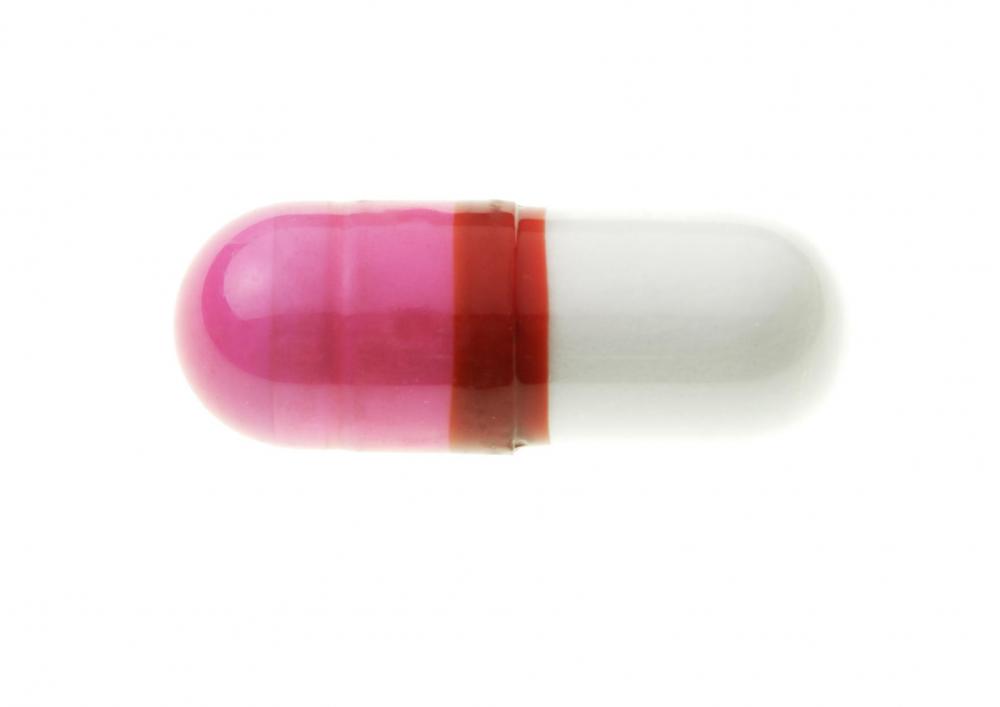At TheHealthBoard, we're committed to delivering accurate, trustworthy information. Our expert-authored content is rigorously fact-checked and sourced from credible authorities. Discover how we uphold the highest standards in providing you with reliable knowledge.
How Effective are Antibiotics for MRSA?
Methicillin-resistant Staphylococcus aureus, more commonly known as MRSA, is a type of bacteria resistant to at least one class of antibiotics. There are many different strains of MRSA, and the bacteria is continuing to evolve and adapt. The effectiveness of antibiotics for MRSA treatment depends on many variables, such as the type of infection, geographic region, and patient’s medical history. Certain drugs remain effective against most strains of MRSA, but laboratory testing has already shown the potential for resistance to these drugs as well.
S. aureus is a form of bacteria that is usually found on human skin. While usually harmless, it can cause infections in open cuts or wounds. These infections had been treated with antibiotic drugs for many years, but in 1961 MRSA, a strain resistant to the commonly used antibiotic methicillin, was identified in Great Britain.

By the mid-1990s, drugs like methicillin, penicillin, and amoxicillin had lost their effectiveness against MRSA, which was infecting an increasing number of people. Most infections were healthcare associated (HA-MRSA), and spread in places like hospitals where the bacteria could prey upon those with weakened immune systems. Community associated MRSA (CA-MRSA) was found in community settings with close contact between individuals, such as day care centers and military boot camp.

Strains of CA-MRSA are often genetically different from strains of HA-MRSA. This means that the effectiveness of antibiotics for MRSA infections can depend on how the infection was acquired. Certain drugs, including clindamycin, rifampin, and trimethoprim/sulfamethoxazole, are much more effective in treating CA-MRSA infections than HA-MRSA infections. CA-MRSA infections also respond better to the fluoroquinolone class of antibiotics, including ciprofloxacin, than HA-MRSA.

Drug resistance among bacteria can also vary regionally. A 2003 study, for example, found that 94% of CA-MRSA samples taken from patients in Chicago had genes responsible for clindamycin resistance, compared to just 8% of samples tested in Houston. This makes it even more difficult to determine the most effective antibiotics for MRSA.
In serious or life-threatening cases, a medicine known as vancomycin is often administered intravenously. Vancomycin, once the only choice in treating strains with multi-drug resistance, remains effective for the majority of infections caused by both CA-MRSA and HA-MRSA. Unfortunately, a few uncommon strains of S. aureus are now resistant to both beta-lactam antibiotics and vancomycin and are difficult to treat.

Recently introduced antibiotics like linezolid are used to treat particularly stubborn infections. Linezolid is mostly used as a last resort because of its high cost and side affects. In addition, overuse of this drug could spur bacterial resistance against one of the most effective antibiotics for MRSA currently on the market.
A patient’s own medical history may also contribute to the effectiveness of treatments for S. aureus infections. About 25 to 30% of people have S. aureus bacteria living on their skin, and these bacteria could become resistant to antibiotics used for other types of infections. Previous hospitalization, surgery, and chronic illness can increase the risk of serious MRSA infections.
MRSA has proven to be extremely adaptable and persistent, and is likely to remain a problem in both healthcare and community settings. In laboratory tests, MRSA has demonstrated resistance to every antibiotic drug currently used to treat S. aureus infections. S. aureus bacteria also seems to have the ability to exchange genetic material with other microorganisms, which could accelerate resistance to drugs. These factors mean that new antibiotics for MRSA outbreaks will almost certainly be needed in the future.
There is evidence, however, that reintroducing certain older antibiotics could be effective. Over time, bacteria may lose its resistance to unused drugs; by cycling drugs in and out of use, healthcare professionals may be able to maintain a more effective arsenal against MRSA.
AS FEATURED ON:
AS FEATURED ON:














Discussion Comments
@Lationne - What's even scarier than a patient's chances of getting a MRSA staph infection at a hospital is the fact that the bacteria causing these very dangerous infections is normally found on our skin. This just goes to show that even things that are usually harmless can be very dangerous under certain circumstances.
@Laotionne - This is good news about some of the older antibiotics possibly being able to treat the infections that had become resistant to them. Speaking from second-hand experience, MRSA staph infections in some cases are really difficult to beat.
I have a friend who had one of these infections a few years back, and the condition would seem to go away for a little while and then return stronger than ever, and the infection was spreading to different parts of his body. The doctors were using all types of MRSA treatment to fight the infections, but he still went through this for a long time. It was really frustrating for him.
How scary is it that you are more likely to get an infection like MRSA in a hospital? I never understood this until reading this article. I guess it makes sense that people who are sick would be more likely to get an infection, and the hospitals are full of people who are sick and who could be vulnerable to some of the bacteria that other patients are infected with.
It is good to read that the different types of bacteria that have been getting harder and harder to treat may be losing their immunity to some of the old antibiotics that used to be so effective in controlling infections like MRSA staph infection.
Post your comments